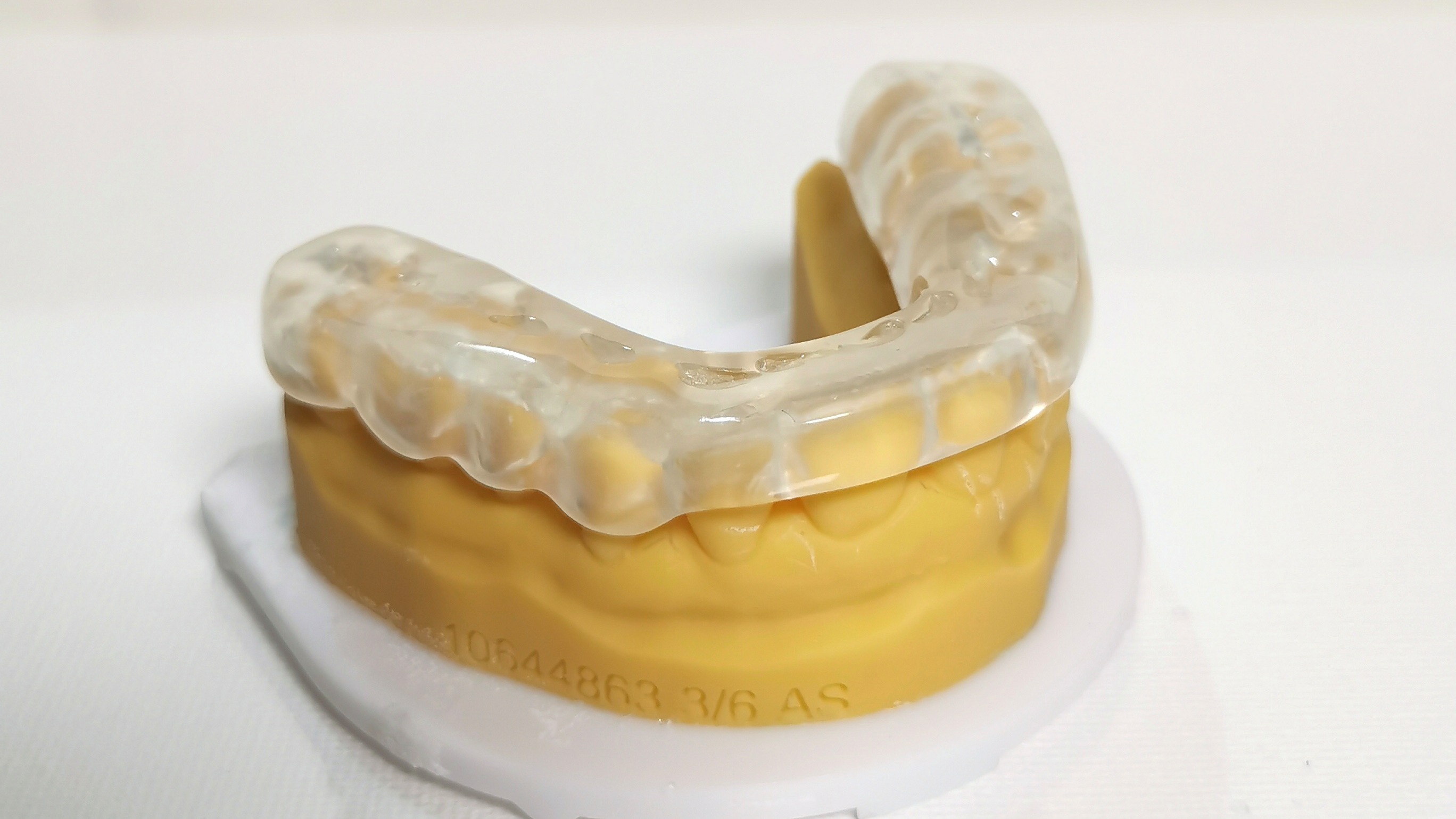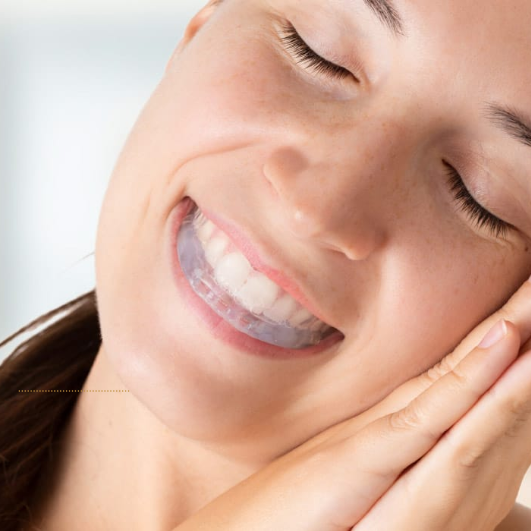Understanding Bruxism: Causes, Symptoms, and Treatments
At Crows Nest Dental Centre, we take care of a wide array of dental issues including bruxism. Bruxism also called teeth grinding is an unnoticed condition that affects many people. If not treated, it can lead to various dental and health problems. In this article will be explored causes, symptoms and useful treatments for bruxism such as the use of splints and Botox injections.
What is Bruxism?
Bruxism is the involuntary or habitual grinding of teeth, typically occurring during sleep (sleep bruxism) but sometimes during wakefulness (awake bruxism).

This condition can affect individuals of all ages and often goes unnoticed until significant dental damage or other symptoms arise.
Causes of Bruxism
The exact cause of bruxism is not fully understood, but it is believed to be linked to a combination of physical, psychological, and genetic factors, including:
The exact cause of bruxism is not fully understood, but it is believed to be linked to a combination of physical, psychological, and genetic factors, including:
- Stress and Anxiety: Emotional stress, anxiety, and tension are significant contributors to bruxism.
- Sleep Disorders: Conditions such as sleep apnoea and other sleep disorders are commonly associated with teeth grinding.
- Malocclusion: Misalignment of the teeth or an abnormal bite can lead to bruxism.
- Lifestyle Factors: High caffeine or alcohol consumption, smoking, and recreational drug use can increase the risk of bruxism.
- Medications: Certain medications, particularly those affecting the central nervous system, can contribute to bruxism.
Symptoms of Bruxism
- Teeth Grinding or Clenching: Often loud enough to awaken a sleep partner.
- Worn or Damaged Teeth: Flattened, fractured, chipped, or loose teeth.
- Jaw Pain: Soreness or pain in the jaw, neck, or face.
- Headaches: Frequent dull headaches, especially upon waking.
- Ear Pain: Pain that feels like an earache, despite no issue with the ear.
- Sleep Disruption: Disturbed sleep for the individual or their partner.
Diagnosing Bruxism
Diagnosis of bruxism typically involves a thorough dental examination, during which your dentist will check for signs of teeth wear, jaw tenderness, and other symptoms. In some cases, additional tests, such as polysomnography (a sleep study), may be recommended to assess sleep patterns and rule out sleep disorders.
Diagnosis of bruxism typically involves a thorough dental examination, during which your dentist will check for signs of teeth wear, jaw tenderness, and other symptoms. In some cases, additional tests, such as polysomnography (a sleep study), may be recommended to assess sleep patterns and rule out sleep disorders.
Treatments for Bruxism
Effective treatment for bruxism aims to reduce or eliminate teeth grinding, manage symptoms, and prevent further damage to the teeth and jaw. At Crows Nest Dental Centre, we offer several treatment options, including splints and Botox injections.

Dental Splints, also known as night guards, are one of the most common treatments for bruxism. These custom-made devices are designed to be worn over the teeth, usually at night, to protect them from grinding and clenching. Benefits of splint therapy include:
- Protection: Prevents tooth wear and damage caused by grinding.
- Jaw Relief: Helps alleviate jaw muscle pain and tension.
- Custom Fit: Tailored to fit your mouth comfortably for effective protection.
Splints are typically made from durable materials and are easy to wear. They act as a barrier between the upper and lower teeth, distributing the pressure more evenly and reducing the impact of grinding.
Botox Injections have emerged as an effective treatment for bruxism, particularly for individuals who do not respond well to traditional therapies. Botox, a neurotoxin, works by temporarily paralyzing the muscles responsible for grinding and clenching. Benefits of Botox treatment for bruxism include:
- Muscle Relaxation: Reduces the activity of the jaw muscles involved in bruxism.
- Pain Relief: Alleviates jaw pain, headaches, and discomfort associated with teeth grinding.
- Non-Invasive: A minimally invasive procedure with no significant downtime.
Botox injections for bruxism are typically administered by a trained dental professional. The effects last for several months, after which repeat treatments may be necessary to maintain
Bruxism is a common yet often overlooked condition that can lead to significant dental and health issues if untreated. At Crows Nest Dental Centre, we offer comprehensive solutions for managing bruxism, including custom splints and Botox injections. If you suspect you might be grinding your teeth, contact us today to schedule a consultation. Our team of experienced dental professionals is dedicated to helping you achieve a healthy, pain-free smile.
Bruxism is a common yet often overlooked condition that can lead to significant dental and health issues if untreated. At Crows Nest Dental Centre, we offer comprehensive solutions for managing bruxism, including custom splints and Botox injections. If you suspect you might be grinding your teeth, contact us today to schedule a consultation. Our team of experienced dental professionals is dedicated to helping you achieve a healthy, pain-free smile.
Address
Level 1, 60 Willoughby Rd, Crows Nest.
Level 1, 60 Willoughby Rd, Crows Nest.
Hours
Monday 8am-6pm
Tuesday 8am-6pm
Wednesday 8am-6pm
Thursday 8am-6pm
Friday 8am-5pm
Saturday 8am-12pm
Closed Sundays & public holidays
